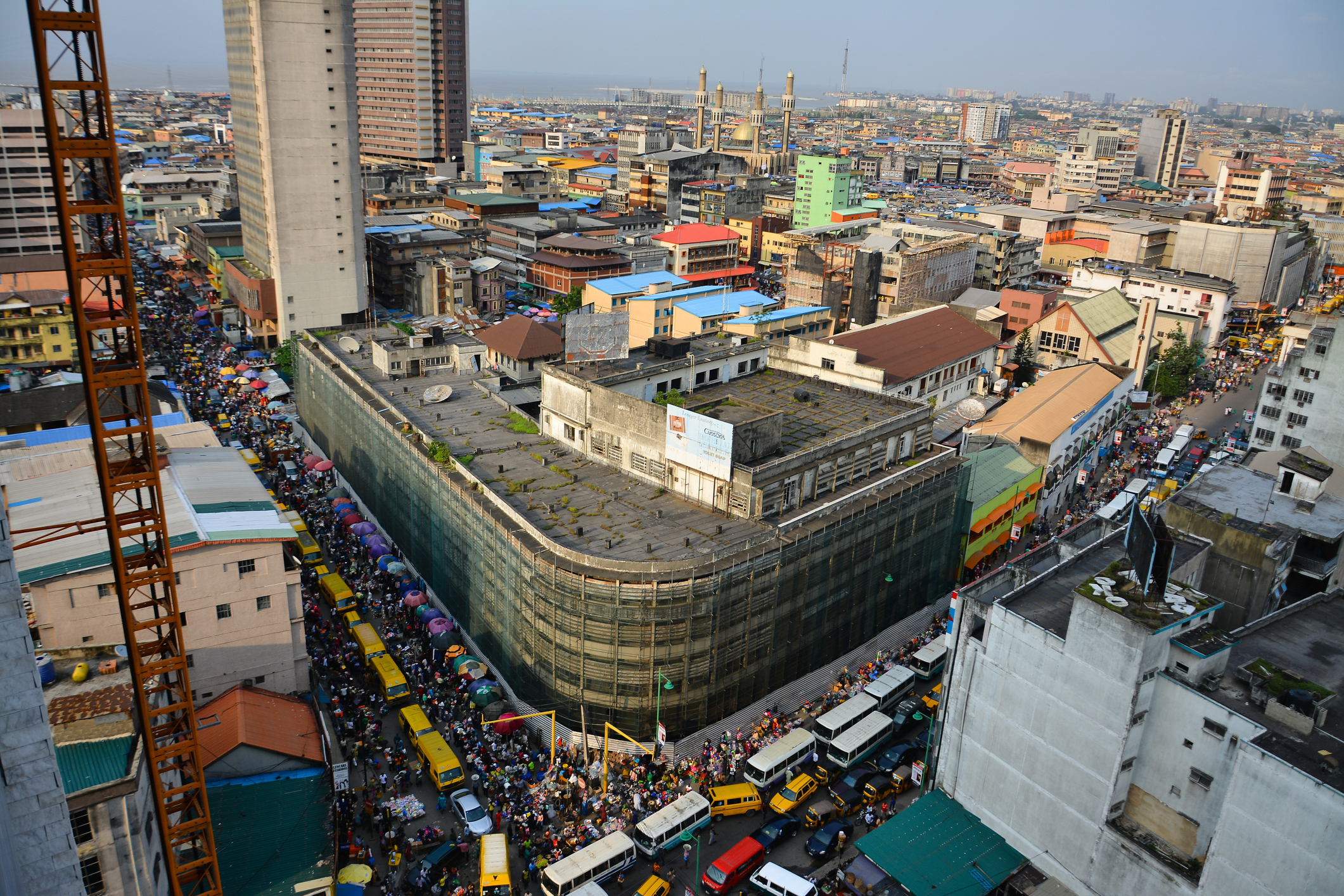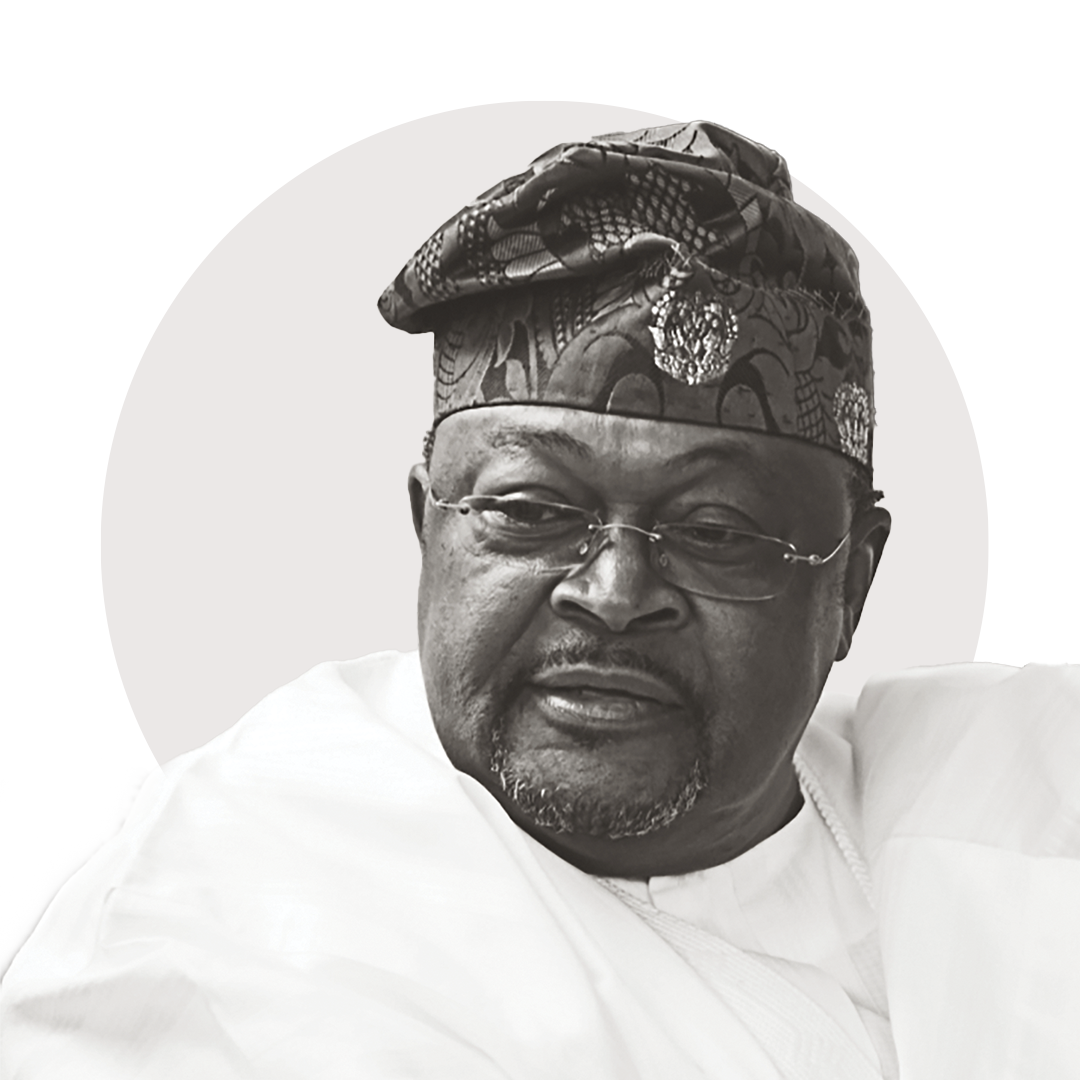In an era where global markets often dictate local fortunes, Nigeria’s ultra-wealthy have built empires rooted in the country’s soil, forging industries that not only create wealth but also provide critical homegrown solutions to the country’s most pressing challenges.
Nigeria’s billionaires are rewriting the rules of business in Africa.
In an economy battered by currency swings, regulatory shakeups, and infrastructure gaps, Nigeria’s billionaire class is not just surviving—they are thriving. The country’s wealthiest moguls have seen their collective fortune balloon—one of the largest wealth jumps in Nigeria’s modern history.
Unlike previous decades, where fortunes were largely tethered to oil booms and government patronage, today’s billionaires have diversified—cementing their influence across industries like energy, power, telecommunications and infrastructure. And yet, they all share one trait: a drive to solve Nigerian problems with Nigerian solutions.
At the top of the list remains Aliko Dangote, Africa’s richest man, whose fortune now stands at $23.9 billion. If the past decade saw him dominate cement and sugar, this decade confirms his place in global energy. His $23 billion Dangote Refinery, finally operational after years of delays, has transformed Nigeria’s refining capacity overnight, slashing dependence on imported fuel. It’s a move not just of business acumen but of nation-building—a direct response to Nigeria’s longstanding energy crisis.
Loading...
Making an emphatic comeback on the Forbes’ Africa billionaires’ list last year after a seven-year hiatus, Femi Otedola not only reclaimed his billionaire status but asserted himself as a dominant force in power generation. With a fortune of $1.5 billion, Otedola’s transition from oil to electricity through Geregu Power has proven prescient. Nigeria’s push for a privatized power sector has given his investments a renewed edge, and his resurgence signals a broader shift in the country’s energy priorities.
For Mike Adenuga, the billionaire behind Globacom and Conoil, the past year has been a mixed bag, reflecting the headwinds in telecom and oil. However, his legacy as a telecom pioneer remains unchallenged—Globacom continues to expand its reach, solidifying its role as a key player in Nigeria’s digital economy.
For Abdulsamad Rabiu, the founder of BUA Group, 2025 has been a year of consolidation. His cement and sugar empire remains formidable, and with Nigeria’s infrastructure boom showing no signs of slowing, BUA Group’s influence is far from waning.
These billionaires are not just accumulating wealth; they are reshaping Nigeria’s economy.
Dangote’s refinery could save the country billions in foreign exchange, and Otedola’s growth signals a future where private capital drives utilities. Yet, challenges persist. The naira remains volatile, government policies shift unpredictably, and infrastructural gaps continue to plague industries. These billionaires have thrived in uncertainty before, but can they future-proof their empires?
There’s also the looming question of succession. With most of these men in their 60s, who will carry the torch? Will their children or handpicked successors step up, or will a new wave of entrepreneurs emerge to challenge them?
One thing is certain: in 2025, Nigeria’s billionaires are more than just wealthy men. They are architects of a new economic order—one where Nigerian solutions define the future of one of Africa’s biggest economies.
Aliko Dangote
Nigeria imports over 80% of its refined petroleum—or at least, it did. With 650,000 barrels per day in local refining capacity, Dangote has flipped the script.
The refinery is expected to slash Nigeria’s fuel import bill, stabilize foreign exchange reserves, and cut costs for millions of Nigerians who rely on fuel for transportation and power generation.
This has seen his net worth soar, largely fueled by the long-awaited commissioning of the Dangote Refinery—the largest petroleum refinery in Africa, positioning it to supply products across Africa. With global energy markets shifting and fuel subsidies phasing out in Nigeria, the refinery’s operational launch could not have come at a more critical time.
The refinery’s impact is already visible. In January, Nigeria’s fuel imports dropped to its lowest level in eight years, while export contracts for petroleum products have been signed with multiple African nations. Observers project that Nigeria could save $10 billion annually on petroleum products imports.
Dangote’s empire predates oil. He is the founder and chairman of Dangote Industries, which includes Dangote Cement, Dangote Sugar, and Dangote Flour.
Ayo-Bankole Akintujoye, a strategy expert, says: “Dangote is the archetype of how homegrown industrialists can catalyze development, create prosperity, and position Africa competitively in the global economy.”
In February, Dangote announced a $400 million investment to double production at his Mugher cement plant in Ethiopia to 5 million metric tons per year. The plant, operational since 2015, had faced political instability, but Dangote confirmed that all loans have been repaid and profits repatriated.
In November 2024, Dangote expanded into Angola, opening a subsidiary focused on oil block acquisitions, the Lobito Refinery project, and cement production. This marks a significant push into southern Africa’s energy and construction markets, further solidifying his continental influence.
Dangote is also making moves in Nigeria’s auto industry. In 2022, he partnered with Stellantis to launch Dangote Peugeot Automobiles Nigeria (DPAN), assembling Peugeot models at a Kaduna-based factory.
“His business model of reinvestment and vertical integration has created a powerful economic multiplier effect across Africa,” Akintujoye notes to FORBES AFRICA. “From manufacturing to distribution, he has strengthened local supply chains, created jobs, and preserved foreign exchange reserves.”
With reportedly 11,000 employees in West Africa and businesses dominating cement, sugar, and now petroleum refining, Dangote’s empire continues to shape Africa’s industrial future. His ability to navigate regulatory complexities, infrastructure deficits, and capital constraints showcases why he remains the most influential business leader on the continent.
Mike Adenuga
Mike Adenuga rules connectivity and crude. With a fortune of $6.8 billion, he is Nigeria’s second-richest man. Dubbed the ‘Silent Billionaire, Adenuga lets his businesses do the talking.
His Globacom, the second-largest telecom network in Nigeria, connects over 60 million subscribers.
Nigeria has 164.9 million active telecommunications subscribers, according to December 2024 subscription sta- tistics released by the Nigerian Communications Commis- sion (NCC). Data consumption is exploding, fueled by fintech, streaming, and e-commerce. Globacom’s strategic fiber-optic expansions keep Adenuga a central figure in the digital economy, with 12.15% of the market share.
Adenuga has always played by his own rules.
His oil company, Conoil Producing, holds six oil blocks in the Niger Delta. Adenuga has significant stakes in Conoil, a publicly traded petroleum firm where he holds 74%, and Sterling Financial Holding, where he owns just under 6%. He also spearheaded the development of Glo-1, a 6,100-mile submarine internet cable linking Nigeria to Europe via Ghana and Portugal, improving broadband access in West Africa.
Industry experts consider Adenuga’s success a case study in indigenous business development.
Mayowa Adeosun, COO and Co-Founder of fintech firm Sycamore Group, underscores Adenuga’s calculated risk-taking and strategic foresight in shaping multiple African sectors.
“Adenuga’s investments in telecommunications and oil seemed prescient in hindsight, but they were made in the face of significant uncertainty and risk,” says Adeosun to FORBES AFRICA. “His ability to navigate complex regulatory environments while maintaining operational efficiency offers valuable lessons for business development across the continent.”
Adenuga’s approach has gone beyond personal wealth accumulation—his infrastructure investments have catalyzed growth across multiple industries. Globacom’s expansion, for instance, has facilitated thousands of small businesses to scale through improved connectivity, showcasing an ecosystem-driven model of wealth creation.
“We observe daily how improved access to capital and financial services can activate entrepreneurial potential across market segments,” Adeosun adds.
“The blueprint established by visionaries like Adenuga demonstrates how institutional builders can create long-term value while addressing fundamental market gaps.”
Abdulsamad Rabiu
Rabiu, the founder of BUA Group, is a key force in Nigeria’s industrial sector. His cement empire is heavily tied to infrastructure spending, which has been volatile due to fiscal constraints.
Nigeria’s infrastructure deficit is estimated at $3 trillion over the next 30 years.
Cement demand will continue to rise.
BUA Group is also expanding into refining and petro-chemicals with a greenfield 200,000 barrels per day plant in Akwa Ibom of southern Nigeria, aiming to produce Euro-V fuels and Polypropylene for the domestic and regional market.
Rabiu has cemented his legacy—quite literally—through his holdings in cement production, sugar refining, and real estate. His decision to merge Obu Cement with Cement Co. of Northern Nigeria in 2020 created BUA Cement Plc, a player on the Nigerian Stock Exchange, where he holds a 98.2% stake. In the food sector, he owns 95% of BUA Foods, another publicly traded giant shaping West Africa’s agro- industrial economy.
Rabiu’s story is one of calculated risks and bold counter-cyclical investments.
His early years were shaped by his father, a businessman-man- man who left him land—an inheritance he leveraged to build an empire. In 1988, he struck out on his own, importing iron, steel, and chemicals, laying the foundation for the industrial powerhouse that BUA would become.
His approach to business defies short-term gains, favoring a long-haul vision where vertical integration and infrastructural development create ripple effects across multiple sectors. Adeosun, of fintech firm Sycamore Group, sees Rabiu’s journey as a blueprint for sustainable African entrepreneurship.
“Rabiu’s strategic investments in manufacturing weren’t obvious wins at the time,” Adeosun notes to FORBES AFRICA. “He invested when others hesitated, navigating economic volatility and complex regulations. His success wasn’t just about wealth accumulation—it was about ecosystem building.”
Femi Otedola
Few Nigerian billionaires have reinvented themselves like Otedola.
Once an oil tycoon, Otedola sold his stakes in Forte Oil to pivot into the power sector, becoming chairman of Geregu Power—pushing his fortune to $1.5 billion.
Nigeria’s grid collapses multiple times a year. Private power is now essential. His pivot from oil to power mirrors a larger privatization wave in Nigeria’s utility sector.
Otedola’s Geregu Power now supplies a significant portion of Nigeria’s electricity grid, attracting investments from the Nigerian government, China’s State Grid Corporation, and African Export-Import Bank (Afreximbank).
Beyond energy, Otedola has also stamped his influence in Nigeria’s financial sector. His investment in FBN Holdings, one of Nigeria’s leading banks, has been pivotal.
As the chair and significant shareholder, he played a crucial role in improving the bank’s efficiency, driving profitability and value for investors. He also holds shares in Zenith Bank.
Kayode Omosebi, Director at Lagos-based MO Africa Company, sees Otedola’s resurgence as a testament to Nigeria’s economic potential and the power of strategic foresight.
“Otedola’s return as a Forbes-listed billionaire showcases the resilience required for success in Nigeria’s evolving business landscape. His ability to think differently, persist against all odds, and strategically reposition his investments is an inspiration for young entrepreneurs. His journey highlights the vast opportunities within Nigeria’s traditional and emerging sectors,” Omosebi tells FORBES AFRICA. Otedola has homes in Lagos, Dubai, London, and Monaco.
Loading...





















